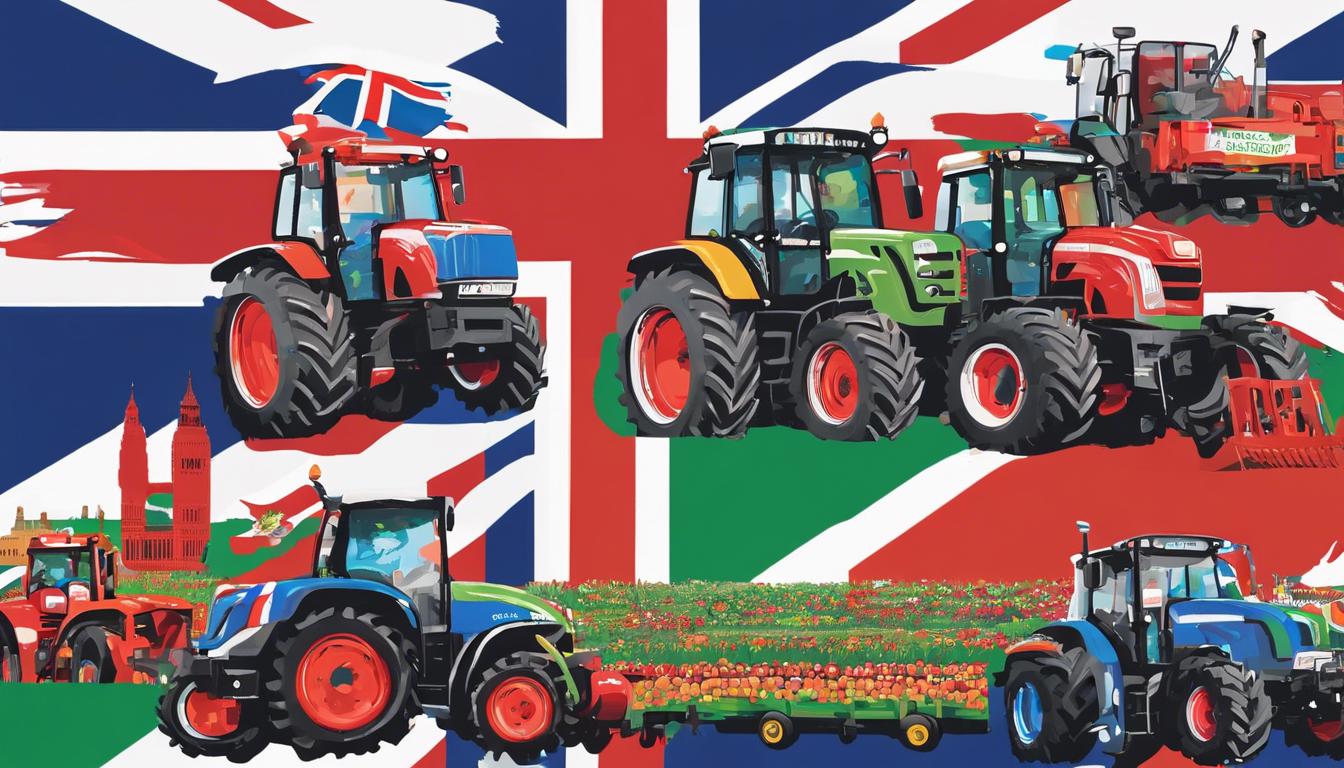Farmers from across the UK congregated in London to protest against trade deals and policies they believe threaten British farming and compromise food security.
Farmers from across the UK amassed in central London in a significant show of protest against what they perceive as threats to British farming and food security. Guided by campaign groups Save British Farming and Fairness for Farmers in Kent, over 100 tractors formed a “go-slow” convoy through Westminster on Monday, bearing messages such as “Save UK food security” and “Stop substandard imports.” The protestors are vehemently opposed to trade agreements with countries like New Zealand and Australia, arguing that these deals allow for the entry of lower-standard foods into the UK market and jeopardize national food standards.
Liz Webster, a beef and arable farmer from Wiltshire and the founder of Save British Farming, voiced her discontent with the current government’s policies, accusing them of betraying British farmers. The protest, which saw farmers voicing their concerns over cheap imports, dishonest labeling, and the competitive disadvantages against EU farmers, follows similar demonstrations in Kent, Paris, and across Europe. Participants like Geoffrey Philpott, a cauliflower farmer from Kent, emphasized the critical importance of addressing these issues to ensure the future viability of British agriculture, especially with an impending election.
The farmers’ outcry primarily revolves around the fear of the UK market being flooded with substandard food products, discriminatory labeling practices, and the unequal standing compared to EU producers. The group Save British Farming particularly highlighted the detrimental impact of specific trade deals and the lack of import checks on the competitiveness of British farming.
In response, the UK Government has defended its position, asserting that a majority of the food consumed in the UK is domestically produced and underscoring its efforts to support farmers through a robust farming budget and consultations on fairer food labeling regulations. However, farmers remain steadfast in their demands for changes in policy to protect British food standards and adequately support local production against the backdrop of global trade dynamics and policy shifts.













